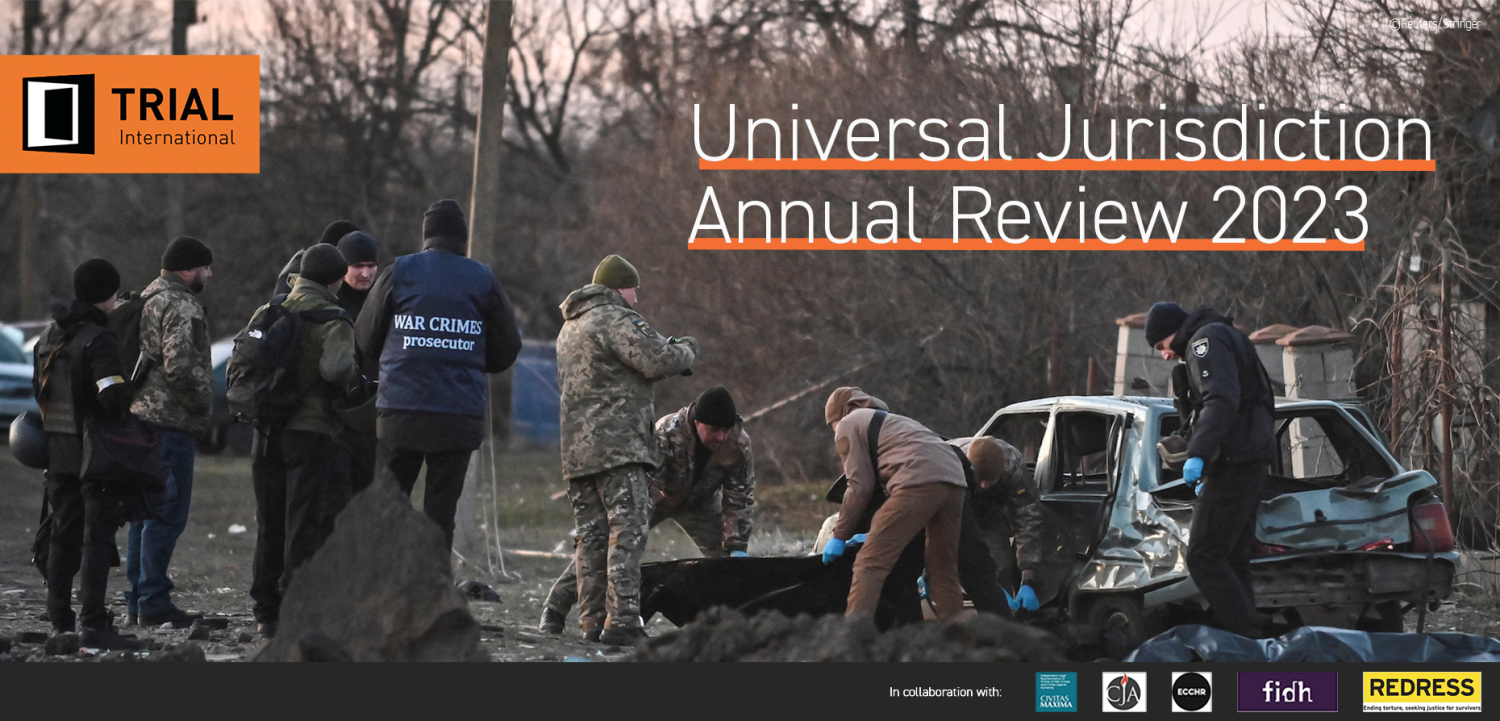
Conflict in Ukraine and Accountability for Economic Actors: Universal Jurisdiction Increasingly Instrumental in the Fight Against Impunity
Lire le communiqué de presse en français
TRIAL International, in collaboration with Civitas Maxima, Center for Justice and Accountability (CJA), ECCHR, FIDH and REDRESS, releases the 2023 edition of the Universal Jurisdiction Annual Review (UJAR) today. The increasing use of the principles of universal and extraterritorial jurisdiction to curb impunity for international crimes is highlighted in the report. Out of the 93 cases covered in the UJAR, 27 are new cases. This trend has, on one hand, been strengthened by the mobilization of a number of national prosecuting authorities in response to the atrocities committed on Ukrainian territory following Russia’s invasion, and, on the other hand, by new investigations targeting economic actors.
Progress in universal jurisdiction in 2022
The UJAR identifies relevant cases based on universal and extraterritorial jurisdiction involving the international crimes of genocide, war crimes, crimes against humanity, torture and enforced disappearances. Significant progress in this field was made in 2022, including landmark convictions in Germany (Anwar Raslan), Sweden (Hamid Noury) and France (Kunti Kamara). With these decisions, the total number of convictions based on universal or extraterritorial jurisdiction since the UJAR was first published in 2015 has reached 78.
Momentum for Ukraine should be extended to crimes committed elsewhere
The atrocities committed following the Russian invasion in Ukraine triggered an unprecedented mobilization of both national prosecution authorities and international institutions, such as the International Criminal Court. At least 11 investigations have been opened across Europe and in Canada based on universal jurisdiction. While this mobilization is fundamental, it should not eclipse the need for justice in other contexts.
Ramping up investigations on economic actors
The number of legal proceedings involving the responsibility of European-based economic actors for international crimes continued to increase in 2022. Twelve investigations are currently underway, notably in France, Sweden and Switzerland, against corporations, their executives and/or businesspersons regarding their alleged involvement in international crimes. These promising applications of universal and extraterritorial jurisdiction are notably the result of long-standing civil society efforts to hold all perpetrators accountable, including powerful corporations.
The year 2022 witnessed an unprecedented momentum in favor of universal jurisdiction. To support and sustain national courts’ commitment to the pursuit of justice, each State should firmly embrace its obligations to combat these crimes by ensuring that it has adequate resources and appropriate legislative frameworks.
emphasized Philip Grant, Executive Director of TRIAL International.
About the UJAR 2023
The UJAR 2023 was authored by Shoshana Levy. This publication was generously supported by the Oak Foundation, the Taiwan Foundation for Democracy and the City of Geneva.
About universal jurisdiction
The principle of universal jurisdiction is based on the idea that international crimes are of such a grave nature that they constitute an attack on all human beings and, therefore, the fight against impunity for these crimes should know no borders. Under this principle, States have an obligation to prosecute suspects of international crimes present on their territory – irrespective of the nationality of the suspects and their victims, and independently of where the crimes were committed.
